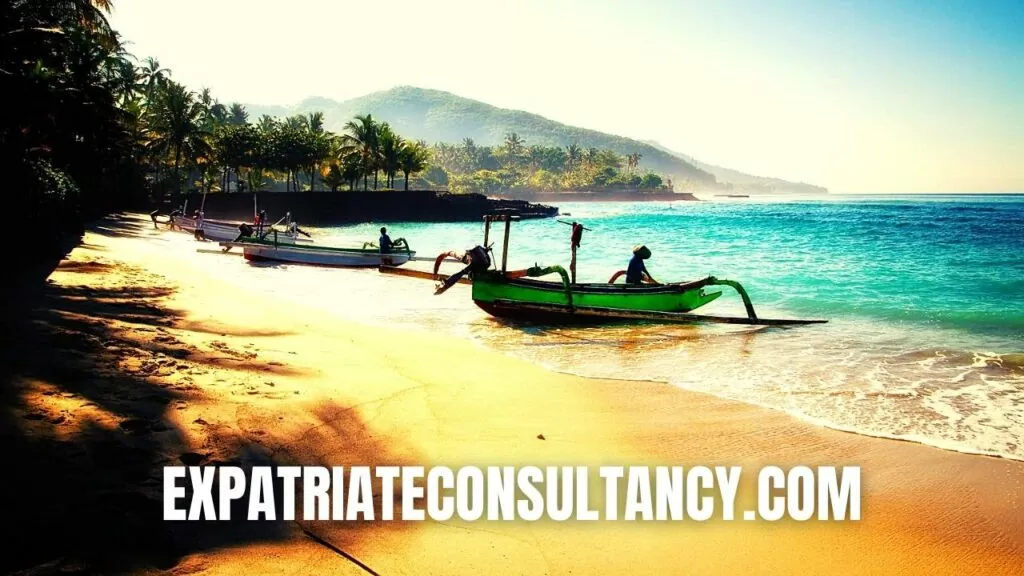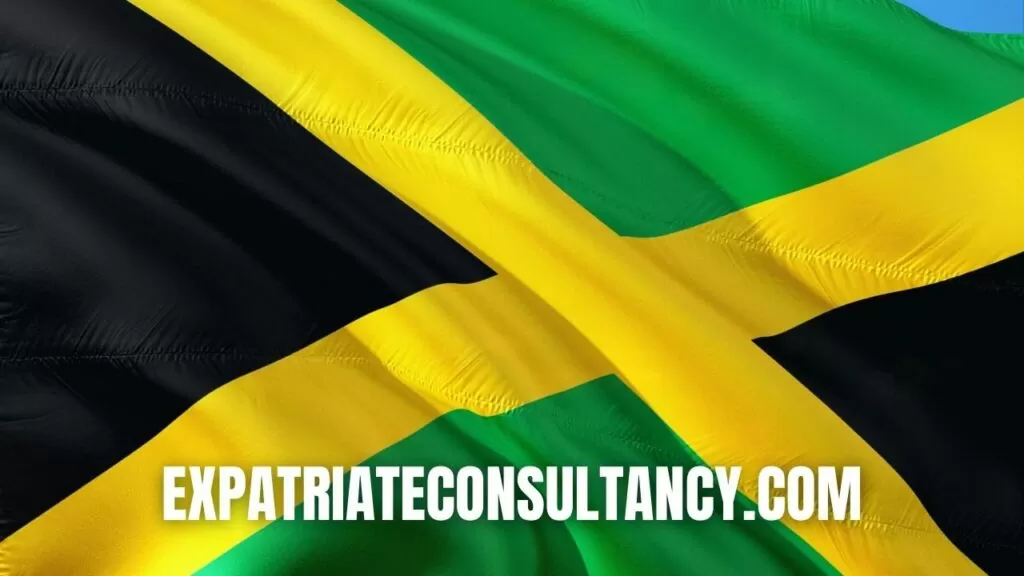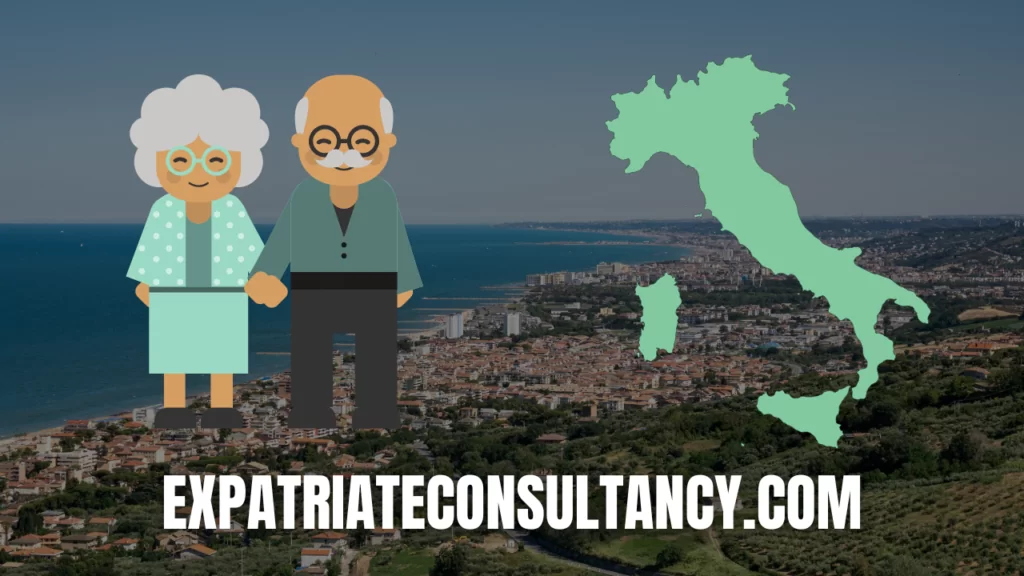Have you ever wondered what it would be like to retire in the third cheapest country in the EU?
I have lived in this country for several years…
Some myths make people think this country is boring.
Others believe it’s gray and cold.
This couldn’t be further from the truth.
I’m often amazed by the explosion of colors.
Impressed by how safe it feels.
How good are the roads and how easy is it to travel around
How tasty are the fruits and how spectacular are the parks
But above all, what amazes me the most is… how inexpensive life is here.
There are many things that are cheap in Poland that surprised me.
You might ask yourself: Is it possible to live comfortably in Poland at half the cost of living in the US?
Here is the answer: NO. It is not only possible to live comfortably with half of the cost of living in the US, because, with that money, you can live like a King.
Or even better than a king, because there will be nobody saying Liberum Veto to you. (Sorry, unless you are Polish or a historian, likely you didn’t get this joke).

First I will start with the surprising Pros of living in Poland, things that nobody told you before, then we will also expose the negative sides, and by the end of this article, you will discover 5 places that offer you unbelievable value, with real proof from people who had been there, like me.
So let’s start with the biggest pros of retiring in Poland as an expat.
The first one is often overlooked, but very important for foreigners like us, and that is the fact that Poland is a very central European country
Location, location, location! Living in Central Europe has its benefits.
Poland has multiple international airports offering quick flights to several iconic destinations. A short flight can take you to cities like Paris, London, or Rome. If you miss mild winters, Malta or Cyprus are just a few hours away by plane.
If you want to fly really cheap, you can use a combination of rail and flight, because from Warsaw you can reach Berlin in just five hours and a half by train.
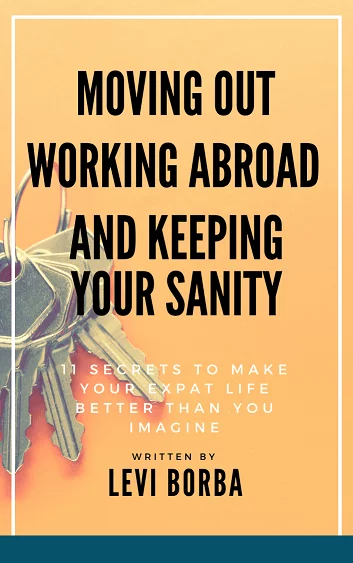
And from Berlin, flights to places like America are much cheaper.
The next pro of Poland is also very notorious:
It is a very safe country.
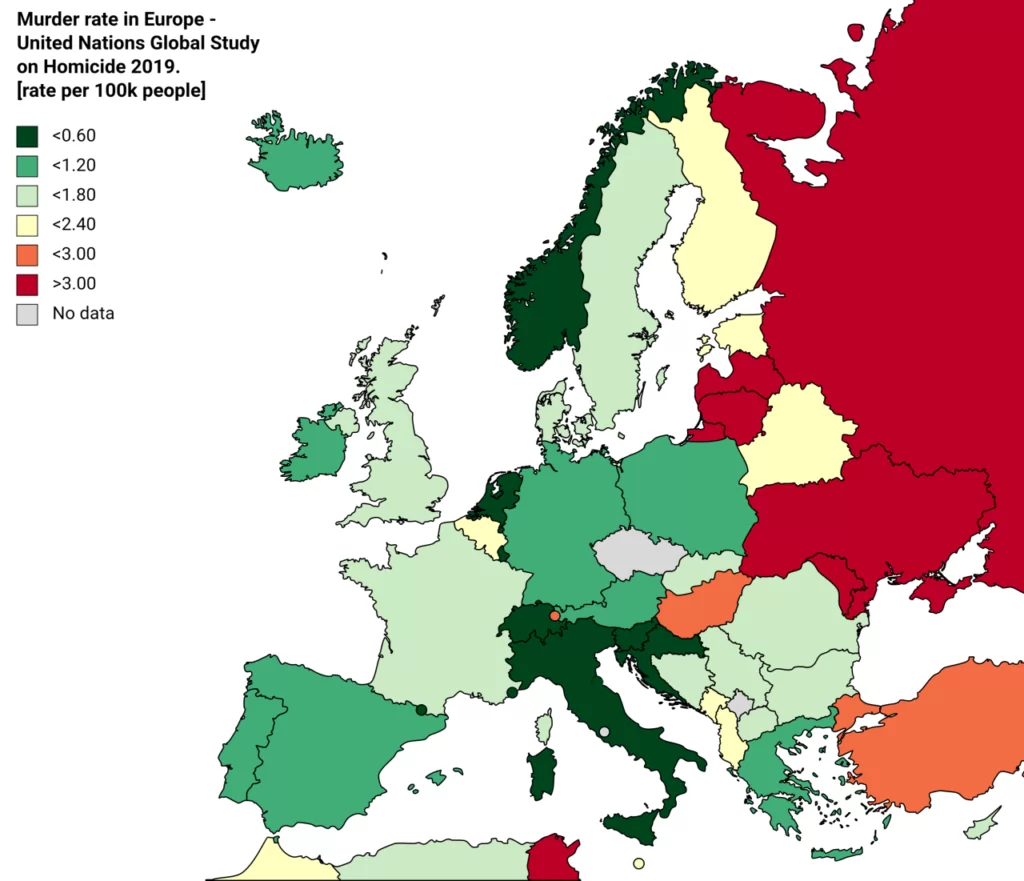
In 2022, Poland, the entire country, had 270 homicides in total.
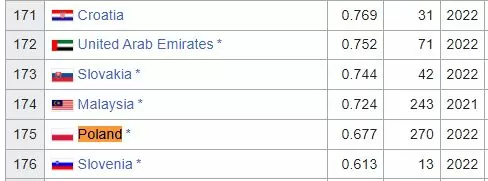
Let’s put this number in perspective: Philadelphia, one single city in Pennsylvania, had 410 homicides in 2023.
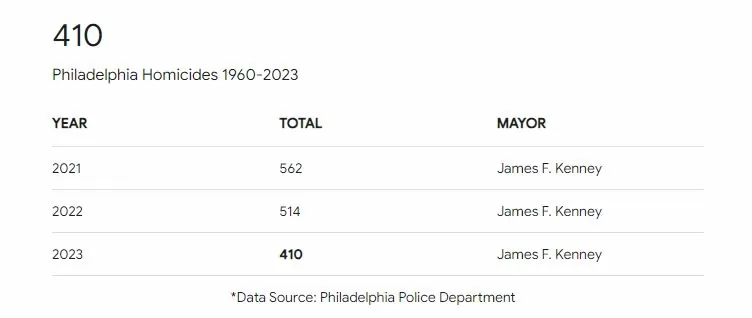
So Poland, with 38 million residents, had fewer killings than Philadelphia, a city with 1.6 million people.
Of course, like most countries, some regions in Poland are more dangerous than others – for example, Mazovia, the region around Warsaw, accounts for over a quarter of all homicides. But even if you compare a place considered “dangerous” in Poland with other parts of Europe, it is still much safer.
Let’s talk numbers.
Rape crimes (Rate per 100,000 people)
- Stockholm, Sweden 6.9
- Paris, France 2.1
- Berlin, Germany 1.4
- Rome, Italy 1.2
- Warsaw, Poland 0.9
Murders (Rate per 100,000 people)
- Paris 1.0
- Stockholm 0.9
- Berlin 0.8
- Rome 0.6
- Warsaw, Poland 0.5
Burglaries (Rate per 100,000 people)
- Stockholm 539.9
- Paris 396.7
- Berlin 341.8
- Rome 250.0
- Warsaw 210.0
Assaults (Rate per 100,000 people)
- Stockholm 3,107.3
- Paris 2,694.0
- Berlin 2,332.5
- Rome 2,020.0
- Warsaw 1,600.0
So I think you get it, right?
Even the “most dangerous” parts of Poland are still safe.
Now, going into more practical terms, another positive in Poland is that…
The public transport is good
Only Warsaw has a subway system, however, all major cities, from Gdansk to Krakow, from Poznan to Lublin, have very well-developed tram systems.
They are frequent and punctual, and ticket prices are reasonable compared to other European cities, except in Lodz, where they are surprisingly expensive.
A 20-minute ride in Warsaw costs 3.40 zlotys, or just 80 cents of Euro, making it one of the cheapest in Europe.

And as I mentioned before, the intercity rail transport is quite good too.
Interestingly, many trains in Poland have restaurant cars, and their food is delicious and not expensive.
The next pro is healthcare.
And if you talk to a Polish person about this, maybe he might say that healthcare here sucks.
The thing here is that public hospitals in general are good, or at least decent.
Since I moved to Poland, I went through two surgeries, in two different hospitals in two different cities. One of them was a public hospital in Lublin that was amazingly good, like the level of quality of a private hospital in many countries, and the other was a public hospital in Lodz that was decent.
The biggest problem of Polish healthcare is the time you must wait – some people say that they need to wait for months to see a doctor, for example. But overall, the quality of hospitals is not bad. Except for the food, which is, well… meh.
A curious fact is that one of the best hospitals in central Europe is the Uniwersyteckie Centrum Kliniczne Warszawskiego Uniwersytetu Medycznego
And the next benefit of living in Poland, probably the one you’ve been waiting for, is…
The Low Cost of Living
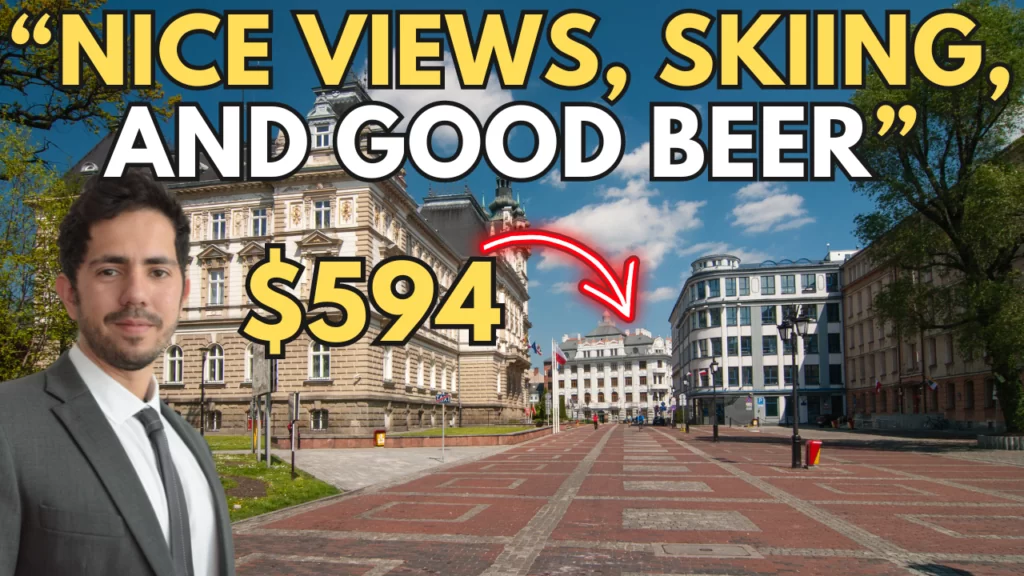
Poland is the third cheapest country to live in the European Union – only Romania and Bulgaria are cheaper.
But when we talk about the cost of living in Poland, there is a very, very big “BUT”. A mistake that, if you do, you will end up paying prices higher than Germany.
This mistake actually is the first negative aspect of the…
Cons of Living and Retiring in Poland
Poland might have some of the best value to retire in the EU, but this doesn’t apply to Warsaw.
Yes, this is the mistake I am talking about: to think that the low cost of living in Poland is also valid for its capital.
It is not.
Warsaw is surprisingly expensive!
For example, on average, Poland is a country cheaper than Hungary, but… the Polish capital is 76% more expensive than the Hungarian capital!
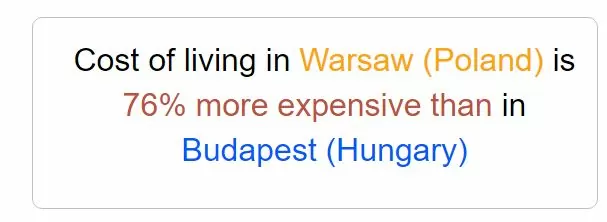
The main reason the cost of living in Warsaw is high is that housing is much more expensive than in the rest of Poland.
There are apartments in the Polish capital being negotiated at more than 40,000 zlotys per square meter – meaning more than 9300 euros per square meter. This is a price level that you could expect in cities like Berlin, Rome, or even Amsterdam.
Meanwhile, in some good, medium Polish cities, you can find a similar apartment for 7000 zlotys per square meter, so 82% cheaper than in Warsaw. So yes, Poland is in general a country with a low cost of living – but not Warsaw.
The next negative aspect that many foreigners living in Poland get used to after some time is…
The Weather.
For half of the year, Poland’s weather can be quite depressing.
The issue isn’t the cold weather itself – The REAL problem is the darkness.
This is a real issue here, especially when the days are short, and the sun sets around 3:30 PM in the winter. Problems like Seasonal affective disorder and Vitamin D deficiency will come hard.
Here is a tale:
When I moved to Poland, during my first winter, I was getting sick ALL the time, something that never happened to me before. My doctor asked for some exams, and we discovered that my levels of vitamin D were below 20 ng/mL. That is VERY low and was causing me a lot of problems.
The doctor told me that this is very common, since in the winter, it is dark most of the time.
And that is not the only problem. The short daylight hours make many people feel constantly tired and miserable. If you come from places like California or Texas, with constant sunshine, the drastic change can be quite challenging.
This issue mostly affects the months between November and March. The rest of the year, the weather is quite nice and even pleasant.
The next negative aspect of Poland is probably the most famous of all.
The feared Language Barrier
For English speakers, Polish is one of the hardest Western languages to learn because of its Slavic grammar, and of all Slavic languages, it is likely the most difficult since it has so many grammar cases.
Well-known languages like English, Portuguese, Spanish, French, or Italian have no grammar cases. Meanwhile, languages that are considered hard like German, Norwegian, or Greek, have between 2 to 4 cases.
Polish, meanwhile, has SEVEN cases.
Almost every word has multiple different forms.
For example, a dog can be a:
- Pies
- Psa
- Psu
- Psem, or
- Psie
… depending on the function it has in the phrase. If you carrying a dog, it is one thing, if you are calling a dog, it is another thing.
Does that sound complicated?
Here is a hint: It is complicated if you try to memorize all the rules and declinations.
But, there is a magic way to learn it: Once you start being exposed to the Polish language, like watching Polish cartoons, or trying to talk to Polish people, after some time, you will realize that you are using the correct cases, even without knowing that you are doing so.
It is like you learned them subconsciously – this is exactly what happened to me.
For this, however, you should study the language in a way that favors exposition, not memorization of grammar rules.
I used a certain approach to learning Polish that favors exposition and conversation, and it also makes it very fun to learn. The method I use to learn new languages is this one (by using this link you get a 40% discount after trying for free): https://www.lingq.com/?referral=LevideSouza

Now, going back to the cons of living in Poland, the next are…
Certain social norms that exist in Poland.

I’m not saying they’re bad, just that they might be hard to get used to
When you first meet Polish people, It might feel like talking to a border guard: at first, they may seem aloof or even rude, but once you know them, they’re friendly.
However, if you’re used to the superficial friendliness prevalent in countries like the US or Canada, or the over-the-top warmth of Latin-American cultures, this can be a bit of a shock.
Especially if the person in question works in a public office, and you need something, because then, you have an added negative aspect.
The bureaucracy
Be prepared for some bureaucratic hurdles. Getting a visa or residency card can be an exasperatingly slow process. What should take months often stretches into years due to the cumbersome paperwork and slow administrative processes.
If you plan to retire in Poland as an EU citizen, the amount of bureaucracy you will face is not much bigger than a Pole would experience.
However, if you are a non-EU citizen, in this case you can apply for a temporary residence permit (also known as Karta Pobytu) based on financial self-sufficiency. You must prove that you have enough stable and regular income to cover your living expenses in Poland – the specific amount depends on the region.
If you want me to talk more about the specificities of each region, just leave a comment so I know enough people are interested on that.
Now, let’s reveal the 5 best places to retire in Poland. I’ve gathered these from my experience, other residents, and tons of data. You will need to register your residency and ensure you have health coverage, but the process is relatively straightforward. Many expats find that some Polish cities, with its rich culture and scenic landscapes, is among the best cities to retire in Europe. Additionally, the cost of living is often lower than in Western European countries, making it an attractive destination for those looking to enjoy their retirement years.
You can access all the sources by subscribing to my Patreon. Tier 2 members get my 3 best-selling ebooks on living abroad, while Tier 3 get a 1-on-1 call to discuss their plans to move abroad. But hurry—this offer is limited to the first 20 subscribers! Head to patreon.com/the_expat to join.
Back to the subject, during my almost eight years here, I’ve personally visited multiple cities in all parts of Poland: North, south, east, and west.
So using a lot of data, and this knowledge, I will answer the most important question of the day:
Which cities are the best if you are planning to move and retire in Poland?
We start with…
Zielona Góra
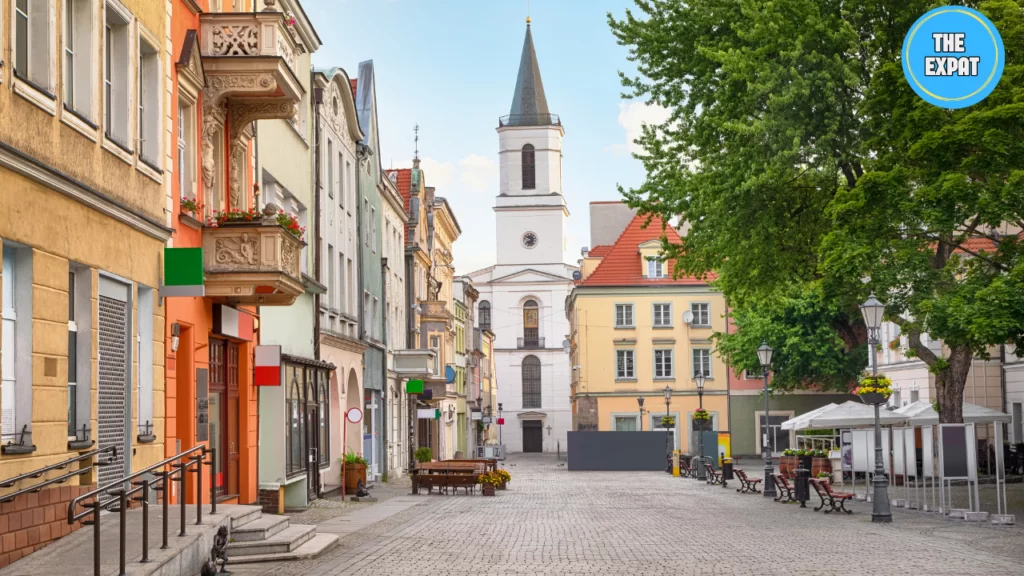
This is a city with around 140,000 residents in western Poland, close to Germany, located between two large cities: Poznań (1.5 hours by car) and Berlin (2.5 hours) via expressway and highway.
A Flixbus to Berlin costs less than 14 euros, so you can go for a day trip if you get bored.
Of all the 16 Polish regional capitals, Zielona Góra is the second cheapest, and the average housing price there is almost 60% lower than in Warsaw.
The climate there is also not as cold as in other parts of Poland – they even have wineries!
Here’s what a local told us about life there:
“Zielona Góra is great. Not too big, not too small, it’s just right in the middle.”
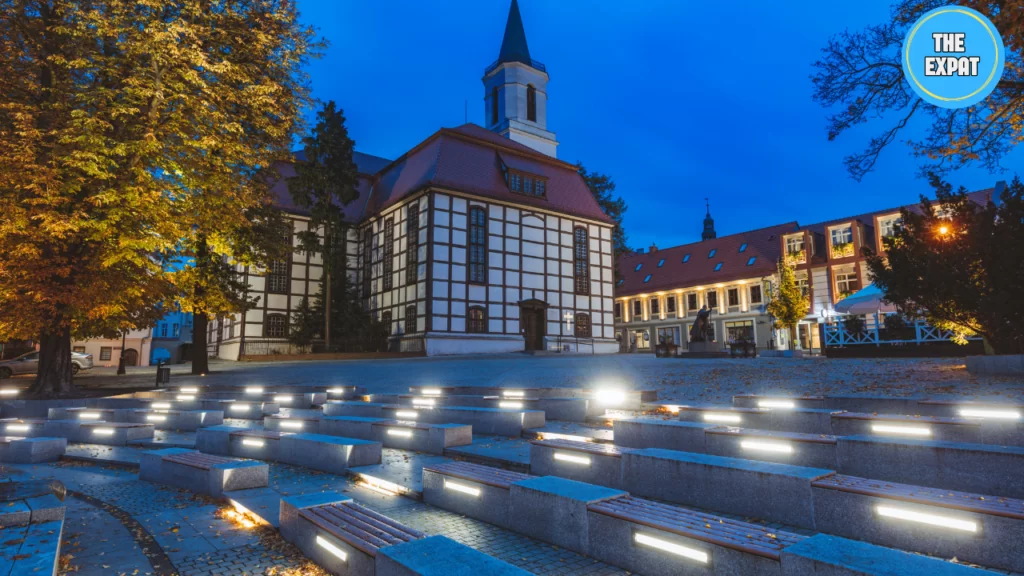
Now let’s imagine you want to rent an apartment in Zielona Góra, and your budget is 850 dollars, which is less than half of the average rent of a 1-bedroom apartment in Philadelphia, a city 25 times more violent than Poland.
850 dollars is the equivalent of 3300 zlotys, so this is our maximum budget.
With this budget, you can rent in Zielona Góra a 3-bedroom apartment with 70 square meters, built with high-standard materials and fully equipped, in a convenient part of the city, that is close to the center but at the same time full of green and quietness.
And all that for 2800 zlotys, or less than 730 dollars.
In Philadelphia, for 730 dollars, you would end up living in Kensington, where, well, you might get stabbed by some fentanyl junkie.
But I promised you the 5 best places to live in Poland, and the next on the list is…
Gdynia
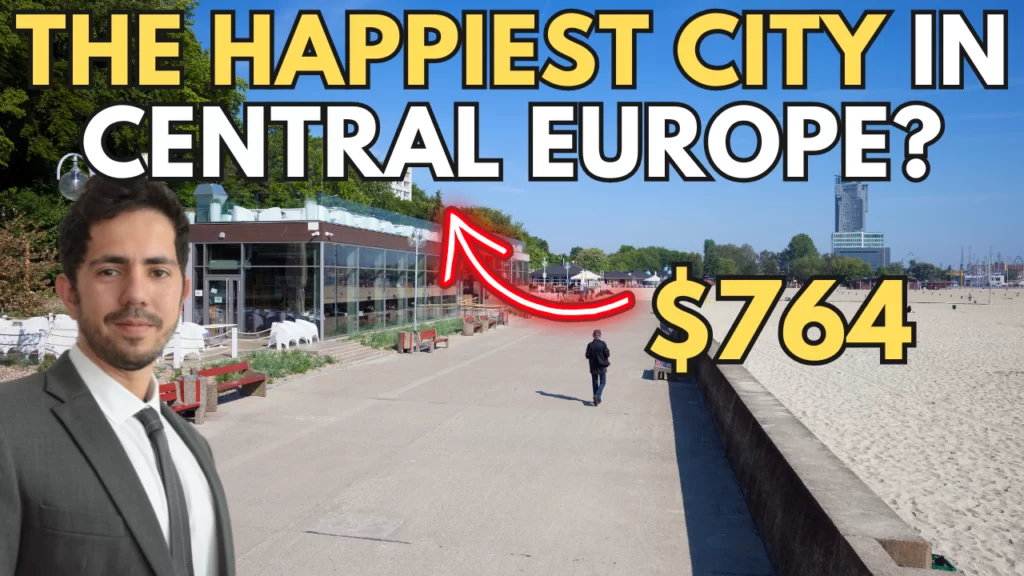
This city is an interesting case because it is a medium city with 244,000 residents, but it is part of a metropolitan area called “Tricity” (“Trójmiasto”). Often poles do not refer to Gdynia alone but to the entire metropolitan area as a single entity.
So while having the calmness and pace of a Medium city, Gdynia offers all the conveniences of a larger metropolis.
According to Eurostat, Gdynia consistently tops Poland’s Quality of Life Index, offering better air quality, and more green spaces than cities like Warsaw or Kraków.
The coastal location gives access to beaches which you can effortlessly go by using public transport – and talking about that, Gdynia has a well-developed public transport system, including buses and trolleybuses, and easy access to Gdańsk’s Lech Wałęsa Airport for international flights.
I went a few times there, some of my friends live there, it is indeed a nice city. This is what a local told us about Gdynia:
“Sea, lakes, forests, hills (if you like mountain biking you would be nicely surprised), clear air, 3 interesting cities in the price of one”
Entering into the subject of cost of living, Gdynia is not as cheap as Zielona Góra, but it is not expensive either.
For our budget of 850 dollars per month or less, you will easily find plenty of apartments close to the sea. Like this one here, that is just a short 15-minute walk from the sea promenade.
The next city might surprise some Poles:
It is Bielsko Biala
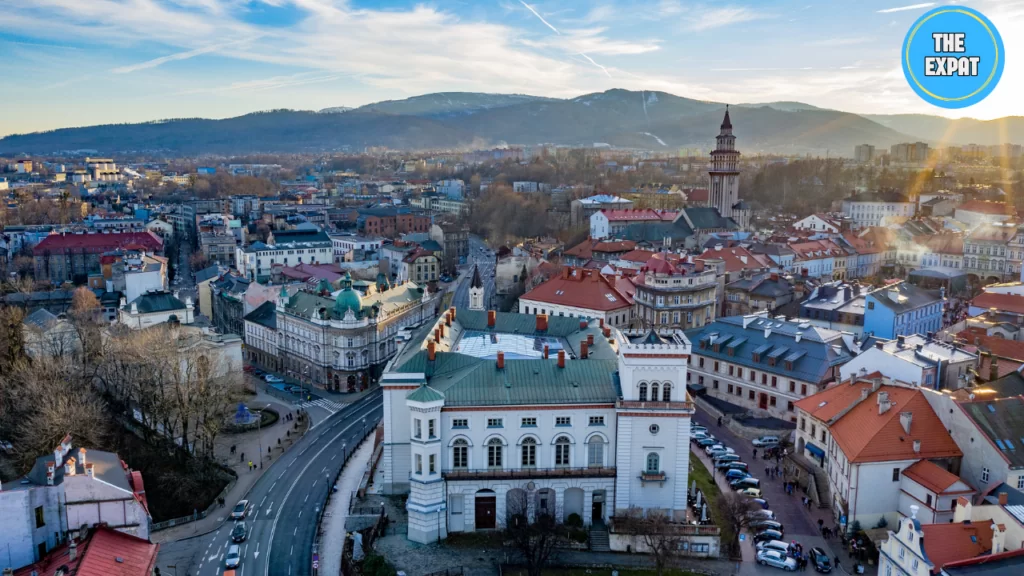
I went to Bielsko Biala multiple times because it is close to one of my favorite ski resorts in Poland, called Szczyrk.
With a population of around 170,000, it combines the charm of a smaller city and the convenience of urban life. The city itself is a bit gray, but the nature surrounding it is splendid, both in the summer and during the winter.
A local told us this about Bielsko Biala:
“Absolutely the best city to live in Poland. Not too big, not too small. Nice views, skiing, and Czech Beer in 25 minutes’ driving distance!”
The fact that there are so many parks, ski areas, and other tourist attractions nearby, surprisingly, does not make the city expensive!
For less than 600 dollars per month, you can live in a 3-bedroom apartment in a historical building in the center of the city.
The other two cities that I recommend are Pruszków and Piaseczno
Both cities have less than 70,000 residents, but they are ideal for those who want to live close to Warsaw.
As I said, Warsaw is very expensive when compared to the rest of Poland, but these two smaller cities are connected to the city by very frequent trains, and their prices are still affordable.
Here is what a resident of one of them told us:
“Pruszków is great, about 25 mins by train to Warsaw, and has everything you’d expect.”
Another good advantage is that these cities are very family-friendly, and quite calm, despite being so close to Warsaw.
This manor, almost a palace, with 450 square meters – almost 5000 square feet, costs the same as a small apartment in Boston.
One could think that such a gem is far from any city in Poland, in the middle of nowhere, but it is just on the outskirts of Piaseczno, less than 24 kilometers from the center of Warsaw!
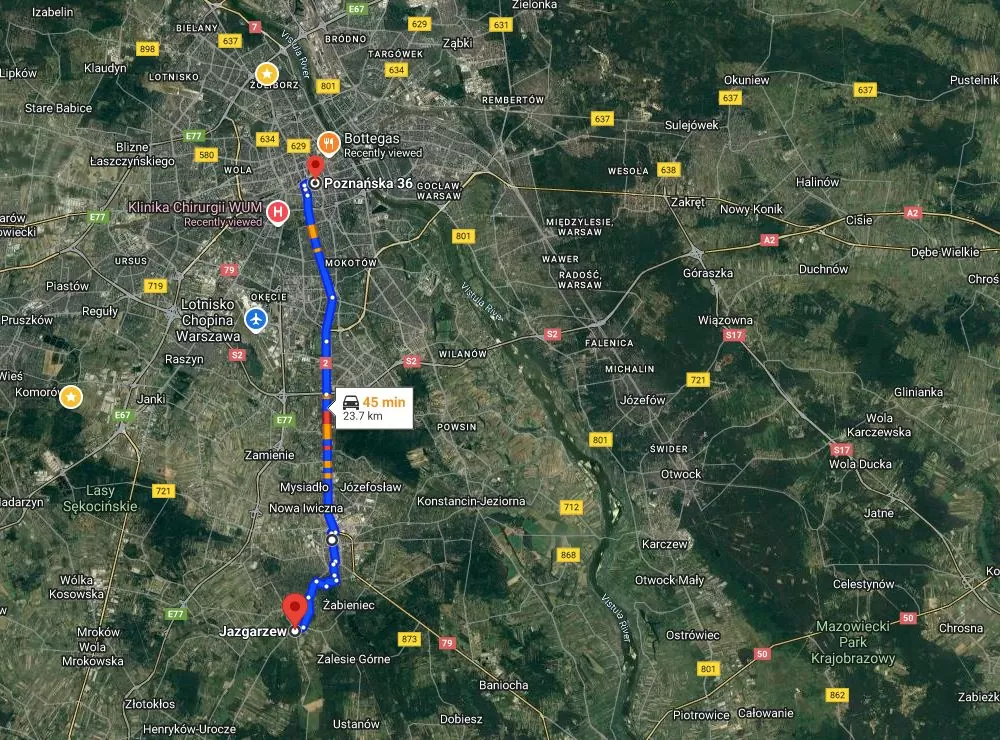
And if you enjoy the idea of living in a palace, but Poland sounds a bit too cold for you
I wrote a piece about a place on the Mediterranean island of Sicily called Agrigento. There, you can live in a noble house, for less than you imagine.
Levi Borba is the founder of expatriateconsultancy.com, creator of the channel The Expat, and best-selling author. You can find him on X here.
